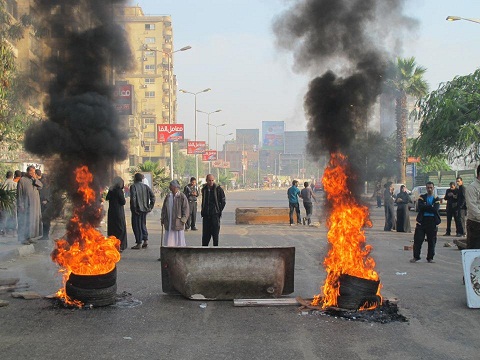CAIRO: A joint committee including members of the People s Assembly (PA) and the Shoura Council (SC, The Upper House of Parliament) met on Wednesday to reach a final decision on some controversial articles in the new political rights law.
According to Al Ahram daily newspaper, the meeting was held at the PA headed by Fathy Sorour, speaker of parliament, in the presence of Safwat Al-Sherif, president of the SC and seven members from each council.
The two councils disagreed about the legitimacy of the SC’s suggestion to make the Supreme Administrative Court s verdicts on parliamentary election violations not subject to appeal and disqualifying candidates who violate the constitutional ban on the use of religious slogans during elections campaigns, reported Al Ahram daily.
Another dispute was over Article 24 of the political rights law which gives the Ministry of Interior the authority to set the number and location of polling stations and subcommittees during elections. This amendment was allegedly not approved by the PA.
Mahmoud Abaza, the President of Al Wafd Party, reportedly argued that the new article contradicts the recently amended Article 88 of the constitution which gives a supreme electoral committee full jurisdiction over elections.
Furthermore, according to another recently changed Article 195 of the constitution, a consensus is required from both councils on any change in the law that is by any means related to the constitution, Hamdy Hassan, PA Member affiliated with the Muslim Brotherhood, told The Daily Star Egypt.
And the new political rights law is directly related to the new constitutional changes.
The new law will instate the electoral committee’s powers and granting it the power to censor Muslim Brotherhood candidates who run as independents during legislative elections and use slogan Islam is the Solution.
Hassan believes the meeting was a mere formality as only members from both councils affiliated with the ruling National Democratic Party (NDP) were invited.
But Georgette Kalien, PA member from the NDP told The Daily Star Egypt that the meeting was not only restricted to NDP members, adding that Mahmoud Abaza, president of Al Wafd party and other independent members were present.
Kalien, however, objected on the new constitutional change that gave the SC the right to intervene in the legislative process emphasizing that this will lead to problems and conflicts.
Kalien also said that according to the constitution, if the joint committee does not reach a settlement, the final decision will be based on a majority vote in both houses of parliament.
The number of PA members is double the number of SC members, so eventually the PA will have the upper hand in the decision, so why do you have to go round and round in circles? Kalien asked.
Hassan criticized the recent constitutional amendments for giving more powers to the SC and pulling the rug from under the PA.
Lasy Tuesday the PA approved the new political rights law on principle, disregarding opposition voices who believe the new law will allow the government to rig elections.
The new law calls for holding the PA and SC elections on one day under the supervision of a higher electoral committee. The committee will be headed by the President of the Cairo Court of Appeals and the President of Alexandria Court of Appeals as well as one of the deputies of the President of the Court of Cassation.
The new law also forbids any political activity based in religion without defining what that means exactly.
Earlier this week, opposition MPs alleged that the PA forged the minutes of the sessions during which the new political rights law were discussed to include the same suggestions that were stated and approved by the SC.
Mounir Fakhry Abdel Nour, general secretary of Al-Wafd party told The Daily Star Egypt that the PA has also refused to conduct any open and objective discussion of the new law, adding that the legislative committee refused to give the opposition parties any opportunity to ask questions or express their concerns about the new law.
We know that [the ruling NDP-dominated] parliament will never actually implement the opposition s opinion but at least it should give us the right to express it. This is no longer a parliament. It has become more like an NGO, he said. With additional reporting by Magdy Samaan
